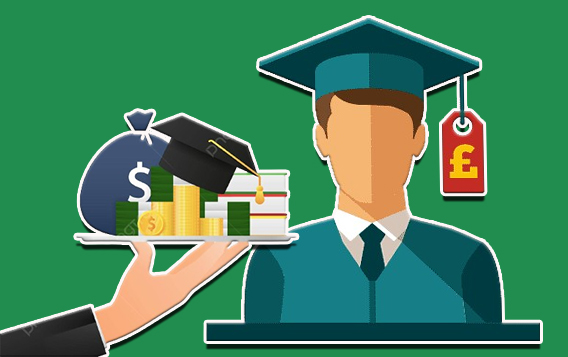College tuition can be particularly pricey. Although the average student loan debt is $39,351, most college graduates owe $80,000 or more. In addition, to pay off $80000 in student loans could be difficult and time-consuming.

For example, the monthly payment required to pay off $80000 in federal student loans at a 6.22% interest rate over 10 years would be $897. Additionally, the total debt would be $107,643. Furthermore, there are ways to simplify and quicken to pay off your $80000 student loans.
How to Pay Off $80000 in Student Loans
The best method to pay off $80000 in student loans is determined by several factors, including your goals, career path, income, and financial situation. The following debt repayment steps might help you develop a payback plan.
Make additional loan payments
Apply any bonuses, tax refunds, or unexpected cash infusions to your debts. Even a small sum, such as $50 or $100 per month, can go a long way. Furthermore, assume you have $80,000 in debt with a 6% interest rate over 10 years. Making an additional $100 monthly payment reduces your debt by one year and saves you $3,783 in interest.
When making additional payments, be sure to ask that they be put directly to the loan principal rather than fees or interest. This is because focusing on the principle might lower your interest rates and expedite debt repayment.
Refinance your student loans
Refinancing student loans will result in one loan to manage, as you will need to take out a new private loan to pay off your existing ones. Furthermore, refinancing at a lower interest rate could keep you hundreds or thousands of dollars while helping you pay off $80000 in student loans faster, depending on your credit.
You can expand the payback duration to lower monthly payments and ease financial challenges. However, remember that lengthier terms result in higher interest payments. When refinancing student loans, it’s also essential to research rates from considerable lenders and look for the best deal.
Get help from your employer or professional programs
Some companies provide debt repayment methods to their employees as a benefit or to promote them to pursue jobs. Also, some insurance providers like Chegg, Google, Ally Financial, and New York Life support their workers to pay off their $80000 student loans.
Competent medical professionals who work at designated sites for two or three years may be able to repay up to $100,000 in student loan debt through the federal National Health Service Corps (NHSC) Loan Program.
Consider using a cosigner
Student loan refinancing typically requires good to exceptional credit with a credit score of at least 700. Many lenders offer refinancing for bad credit, but these loans typically have higher interest rates than those for good credit. Consider applying with a cosigner who has good credit to help you enhance your score and your chances of acceptance. Even if you don’t need one, a cosigner might raise your interest rate, increasing your credit eligibility.
Look for opportunities to increase your income
Garage sales, reselling old products, ridesharing, supermarket delivery, and freelancing on platforms such as Upwork or Fiverr can all help you earn extra money. Expanding your income can also accelerate debt repayment. If your current job doesn’t increase your income, consider turning a hobby into a side hustle.
Pursue loan forgiveness for federal student loans
Borrowers of federal student loans have access to some forgiveness programs. In most cases, these schemes require participants to work in a specified industry and donate qualifying amounts for a set period. If you work for a nonprofit or a government agency, you may be eligible for Public Service Loan Forgiveness (PSLF) after 10 years of qualifying payments.
Sign up for autopay
By ensuring that you complete your payments on time, autopay can help you improve your credit history. Autopay offers the additional benefit of potentially reducing interest rates on both federal and private student loans upon enrollment.
How Long Will It Take To Pay Off $80000 In Student Loans
You can pay off your $80000 student loans over many periods with the help of the repayment plan and on-time payments. Both commercial and public loans normally have a ten-year repayment period. However, that payback period may lengthen if you fail to make payments.
Extended and IDR plans allow government loan terms to be extended to 20 or 25 years. Furthermore, alternative terms for private loans could be anywhere from five to 25 years.
What Happens If You Don’t Pay Off $80000 In Student Loans
If you do not pay off the required monthly payments on your $80,000 student loans, they may go into default. Private lenders may sue debtors for outstanding debt, whereas the government may deduct unpaid federal loans from income, tax returns, or Social Security benefits.
Many consumers choose the government’s flexible and reasonable repayment arrangements to face the penalty of default. If you are having issues repaying a private loan, contact your lender straight away. In certain cases, you may be able to negotiate payment arrangements or settlements.

